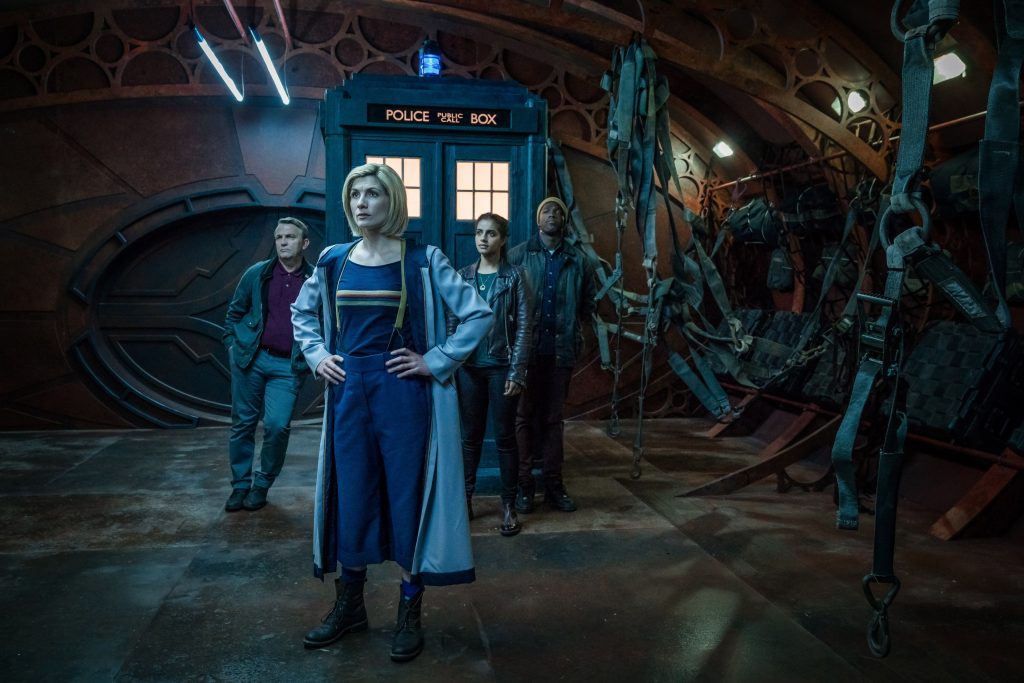It was a safe bet going in that Doctor Who Series 11 was going to be unlike most seasons it was following. The arrival of a new showrunner, Chris Chibnall, and the start of Jodie Whitaker’s turn as the Doctor had created a lot of buzz around the show, and not all of it good.
It’s hard to watch a show with such considerable cultural clout as Doctor Who in a vacuum. The casting of the first female Doctor meant that the conversation often derailed towards whether the move was much deserved or a symptom of political correctness run amok.
It would be wrong to watch the new series in a vacuum, because it does address sensitive and relevant social issues over the course of its ten episode run (and the subsequent new year’s special).
There are three notable historical episodes- two that take place during the start of the Civil Rights movement and the Partition of India respectively, and another that takes place in seventeenth century England amidst witch hunts that do a good job of covering the relevant issues of these time periods while moving the story forward.
The best thing about this series is, for better or worse, the Doctor, Jodie Whitaker herself. She brings a lot of energy to the role, mixing parts of Smith’s exuberance and Tennant’s expressive reactions to her portrayal.
The most striking thing about Whitaker’s portrayal, however, is the level of empathy she brings to her role.
She tries to resolve situations through logic and understanding, and prefers to surround herself with company, which is a marked contrast to the more solitary 12th Doctor portrayed by Peter Capaldi.
However, the show suffers because unlike previous seasons, there is no overarching long term narrative connecting the individual stories together. There is a recurring villain, Tim Shaw, who appears twice, but the story isn’t as tightly connected as you would normally expect. Chibnall consciously made a decision to make series 11 more anthology- oriented, a throwback to the earliest seasons of the original show.
The series had a good chance to make up for this lack of serialized storytelling with greater focus on the characters, but it fumbles in this regard as well, despite having a larger core cast.
There are three companions onboard the TARDIS this time around: Graham, his grandson Ryan and policewoman Yasmin. However, although the backstory of all three characters are explored in different episodes, it still feels that things happen to them and they simply react to it, instead of having more agency and growing through their experiences. Regardless, Graham (played by Bradley Walsh) is the strongest companion, deftly balancing emotional moments with humor.
Similarly, although the Doctor remains an engaging presence, she doesn’t really go through significant character development either. She does have interesting obstacles to overcome that come about as a result of her new gender, such as being accused of being a witch, but it doesn’t affect her as much as, for instance, Eleven’s conflict with the Silence did or Twelfth’s struggle against the Time Lords to save Clara.
Other than Whitaker’s performance, the best thing about series 11 is its consistency. The quality rarely, if ever, dips below above average. Although Chibnall’s writing for Doctor Who isn’t particularly strong, it’s clear that he is still finding his footing as his run continues.
As it stands, Series 11 isn’t as memorable at the moment as its predecessors. However, it represents an important step in a new direction, and hopefully future installments will improve on it and include a captivating long term narrative that tests the Doctor and her companions, thereby making them grow through conflict.
